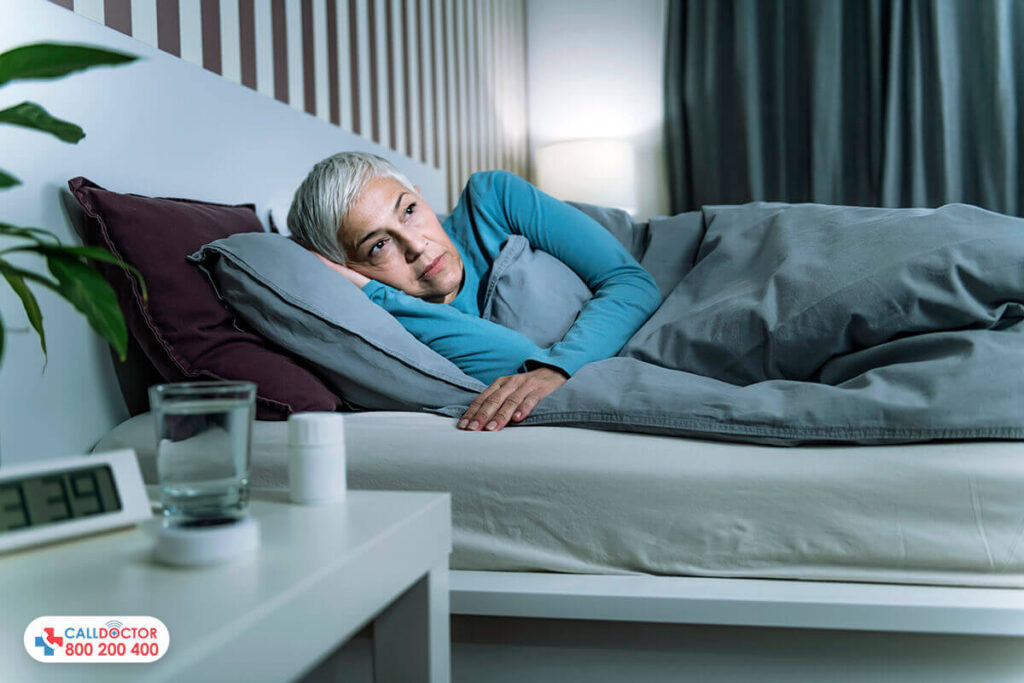Sleep is a fundamental need for the human body and vital in maintaining physical and mental health. Unfortunately, sleep disorders are becoming increasingly prevalent worldwide, and Dubai is no exception. In this blog, you will get to know about the causes, symptoms, and treatment options for sleep disorders in Dubai and the prevalence of sleep disorders in the region.
The term “sleep disorder” encompasses a range of conditions affecting a person’s ability to fall, stay, or achieve restful sleep. In Dubai, sleep disorders are becoming more prevalent, leading to increased awareness and concern about the problem.
Common Types of Sleep Disorders
Several types of sleep disorders can be classified into four main categories:
- Insomnia
- Sleep-related breathing disorders
- Central disorders of hypersomnolence
- Circadian rhythm disorders

Insomnia
The most well-known and widespread sleep problem, insomnia, is characterized by difficulties in sleeping or staying asleep. Several things, such as stress, anxiety, despair, or physical discomfort, can bring it on.
Respiratory Issues Related to Sleep.
Breathing disturbances while sleeping can lead to sleep-related breathing problems, including sleep apnea. It can result in daytime exhaustion, other health issues, loud snoring, gasping, or choking noises.
Central Disorders of Hypersomnolence
Central disorders of hypersomnolence are characterized by excessive daytime sleepiness despite adequate nighttime sleep. Moreover, it can cause narcolepsy or idiopathic hypersomnia.
Circadian Rhythm Disorders
Circadian rhythm disorders occur when a person’s internal body clock is out of sync with their external environment. It can lead to difficulties falling asleep or staying awake at the appropriate times.
Prevalence of Sleep Disorders in Dubai
According to a study by Dubai Health Authority, over 70% of Dubai residents suffer from at least one sleep disorder. Insomnia was found to be the most prevalent sleep disorder, affecting 31.3% of the study participants, followed by sleep-related breathing disorders (28.1%), circadian rhythm disorders (17.2%), and central disorders of hypersomnolence (8.8%).

Causes of Sleep Disorders in Dubai
Several factors and reasons can contribute to the prevalence of sleep disorders in Dubai. One of the main factors is the fast-paced and stressful lifestyle that many residents lead. The hot and humid climate can make getting comfortable and falling asleep at night difficult. Other factors include a lack of physical activity, a poor diet, and increased screen time before bed.
Stress and Sleeping Disorders
Stress and sleeping disorders are closely related. When we experience stress, falling, staying, or getting restful sleep can be difficult. In turn, a lack of sleep can worsen anxiety, creating a cycle that can be challenging to break.
One reason for this connection is that stress can activate the body’s “fight or flight” response, making it harder to fall asleep. Additionally, stress can cause physical tension and discomfort, making it difficult to get comfortable in bed.
Chronic stress can also lead to anxiety or depression, common causes of insomnia and other sleep disorders. Anxiety and depression can cause racing thoughts, worry, and difficulty relaxing, making it hard to fall asleep.
Symptoms of Sleep Disorders
Some common sleeping disorders symptoms include the following:
- Difficulty falling or staying asleep.
- Daytime fatigue or sleepiness
- Loud snoring or gasping during sleep.
- Irritability or mood swings
- Difficulty concentrating
- Memory problems
- Morning headaches
Treatment Options for Sleep Disorders
There are several treatment options available for sleep disorders, including:
- Lifestyle changes include improving sleep hygiene, increasing physical activity, and reducing screen time before bed.
- Behavioral therapies, such as cognitive-behavioral therapy
- Medical interventions include continuous positive airway pressure (CPAP) for sleep apnea or medications for other sleep disorders.
- Sleep disorders treatment may include lifestyle changes, such as improving sleep hygiene, developing a consistent sleep schedule, and reducing caffeine intake.
- Therapy may be recommended to address underlying psychological or medical issues contributing to sleep disturbances.
Get professional help for a sleeping Disorder
Undoubtedly, sleep disorders can significantly impact a person’s physical and mental health. If you are experiencing persistent sleep issues, don’t hesitate to contact our healthcare professional for guidance and support. Getting the help, you need can significantly affect your sleep quality and overall health.




